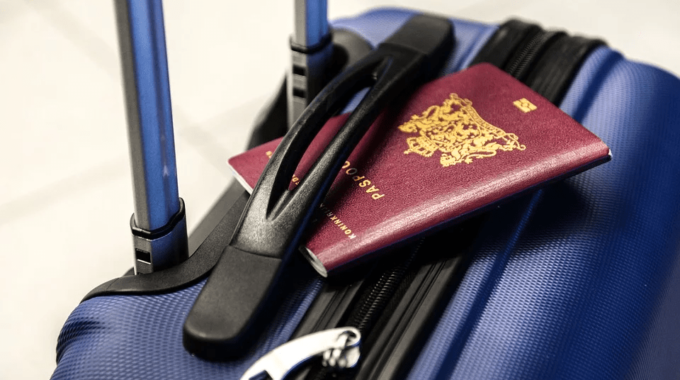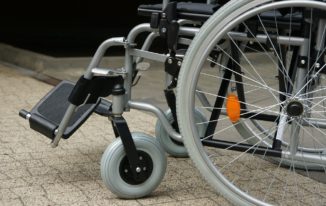As travelling becomes more enjoyable and less expensive and the world becomes more accessible and smaller, more families want to explore and discover the planet.
The travel industry has embraced the needs of travellers with disabilities providing more comfortable and accessible services. But, it’s possible to encounter some difficulties since different countries have different accessibility regulations. However, with a positive attitude and careful preparation, you can enjoy a safe and accessible trip.
Tips for Hassle-Free Travelling this Holiday Season with a Child with Disability
1. Prepare ahead of time
When travelling with a child living with a disability, thorough preparation is an integral part of your holiday. Ensure that the places you plan to visit are accessible for a seamless experience.
Preparation also ensures you have contingencies in case the plans fall through.
To plan, you need to:
- Gather information about the country, area, and location you want to visit. Check out if it’s accessible for your loved one, and learn early enough about any particular arrangements that need to be done prior to your arrival. The more information you gather and prepare in advance, the more comfortable and enjoyable your holiday experience will be.
- Before booking the trip, consult with your child’s doctors if he or she is healthy enough to travel internationally or even across the states. Have the doctor write an articulate and succinct description of your child’s condition that you can use to inform doctors at your travel destination should the need to seek medical treatment while on holiday arise.
- Manage your expectations and plan on taking regular breaks in between sight-seeing.
2. Gather travelling tips from disability organization or friends
If this is the first time you are travelling with a child living with disability, it is vital to speak to people who have done it before. You can contact a disability organization for more insight and the best way to travel. The Americans with Disability Act and the U.S Department of State have useful and general resources on hotels, cruise sailing, and transportation for people living with disabilities. For international travel, you can check out Mobility International USA. They have helpful information on wheelchair charging and accessibility and advice on hassle-free travelling for specific types of disabilities.
3. Understand each country has different Disabled travel regulations
Before travelling internationally for your holiday, you need to understand every country and state has various rules on the accommodation of persons living with disabilities. Some countries are not ADA-compliant hence the need to discuss accessibility options in advance. Knowing different regulations makes navigation easier.
4. Research on areas you want or will visit in advance
Conducting basic research on the places you may wish to visit during your holiday can help you figure out if the sites meet the requirements for a child living with disabilities. Using travel agencies who have prior experience in planning a travel itinerary for people travelling with disabilities will provide the needed guidance. If travelling abroad, you may contact the local consulate or embassy for more information on accessible areas in that country. Also, contact the possible bus companies, airlines, hotels, and attractions and inquire about their accessibility. Check out online reviews of other travelers with people living with disabilities to guide you on the best accessible locality to travel.
5. Book all travel arrangements in advance
It’s advisable to book your accommodation, airlines and rental cars in advance. This ensures you have accessible amenities guaranteed and prevent uncomfortable situations. Book hotels with unique accommodation for persons living with disabilities and ask for special facilities. When booking airline seats, coaches, hotel rooms and sights, request for accessibility. You may consider using travel agents that deal with disabled travel to make your bookings. It’s advisable to book a full itinerary for your family and have a detailed plan for your holiday to ensure it’s as smooth as is possible.
6. Choose the Right Guide
Ask for travel guides who have experience in handling children living with disabilities so they can help you to travel around comfortably. The guides have ideas on accessible places to visit and the best way to traverse the city. In case of hearing disability, the guide should be conversant with sign languages or have pamphlets with the necessary information to ensure seamless communication. It’s easy to book a guide through your hotel, travel agent, or even online.
7. Have medical Insurance and carry medical information
When travelling, you need proper travel insurance that caters to medical bills for your child living with disabilities. Additionally, carry emergency information detailing your child’s condition, medication and any allergies. Have the contacts of your child’s doctor, other family members, and also the medical insurance information well written and placed somewhere visible.
8. Carry an Emergency Kit
Make sure you carry an emergency kit with extra prescription drugs, to prepare for any contingencies that may happen during your holiday. This may prevent unwanted doctor visits. . For crutches and wheelchairs, bring the necessary tools and manuals for quick fixing, preventing immobility due to broken equipment.
9. Arrive Early
Because accommodating a person living with disabilities does require rearranging of amenities or some extra time, arrive at your scheduled trip itinerary early enough. It will minimize discomfort and ensure the best access possible. For the airlines, arrive 3-4hrs before the expected arrival and departure time, and for the rental cars, trains and business reach 2 hours before. If going on tour, come half an hour earlier to get an accessible and comfortable seat.
10. Register with the embassy or local authorities
When travelling in a foreign country with a child living with disabilities, it’s advisable to inform your country’s embassy/consulate of your travel itinerary. Providing the authorities with such information may come in handy during emergencies. Furthermore, it’s advisable to have copies of your passports and identification placed in a reachable place in case the originals get lost.
Travelling with a child living with disabilities is possible with a little effort and planning. Travel at your own leisurely pace, always allow ample resting time between your itineraries, be creative, and make memorable moments.









Hi Sonal,
Very nice article.
Thanks for sharing.
Keep up the great work.
Thank you
I would love to read more on such topics. thanks for Tips for the Hassle Travelling .